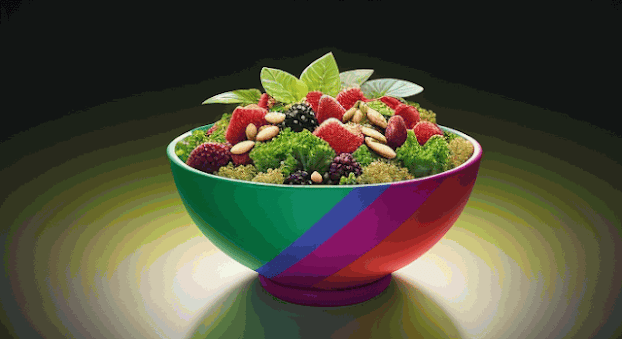
Incorporating Nutritious Whole Foods into Your Daily Diet
Consistently nourishing your body with less processed, nutrient-dense foods provides a wealth of health benefits over time. Certain foods supply protective compounds and key nutrients that enhance energy, vitality, and total wellbeing.
Let's discuss some research-backed superstar ingredients to focus on working into your regular dietary routine.
Amazing Antioxidant Powerhouses
Antioxidants defend against oxidative stress caused by free radicals, which drives disease and aging. These foods contain powerful antioxidants:
Berries
The anthocyanins in all varieties of berries combat inflammation linked to chronic illness and brain decline. Their fiber feeds your microbiome.
Leafy Greens
Spinach, kale, chard, lettuces, and other greens contain lutein and zeaxanthin for eye health and cancer-fighting compounds like sulforaphane.
Tomatoes
The lycopene in cooked tomatoes protects skin from sun damage and may reduce risks of prostate, lung, breast and stomach cancers.
Heart and Brain Nutrition Heroes
These foods provide key nutrients that nourish cardiovascular and cognitive wellbeing:
Fatty Fish
Salmon, mackerel, sardines and other fatty fish contain anti-inflammatory omega-3s that lower risks of heart disease, stroke, dementia and autoimmune disease.
Nuts and Seeds
Almonds, walnuts, chia, flax and others supply protein, fiber, minerals, monounsaturated fats and antioxidants that benefit both heart and brain function.
Avocados
Creamy avocados provide oleic acid to reduce inflammation, potassium to lower blood pressure, and lutein to support eye health.

Immunity and Digestion Superheroes
These foods contain compounds that optimize immune defenses and digestion:
Mushrooms
Shiitakes, portobellos and wild mushrooms offer polysaccharides that strongly support immune system function and balance inflammation.
Fermented Foods
Sauerkraut, kimchi, kefir, yogurt, tempeh, miso, kombucha, and pickles provide probiotics to balance digestion and strengthen immunity.
Garlic and Onions
These flavorful allium vegetables contain sulfur compounds with antibacterial and antiviral properties that fight disease-causing pathogens.
Plant Protein Powerhouses
These foods offer ample protein from plants to support metabolic processes:
Beans and Lentils
Kidney beans, black beans, chickpeas, and lentils supply steady plant-based protein, antioxidants, B vitamins, minerals, and gut-healthy fiber with a low glycemic index.
Nuts and Seeds
Walnuts, almonds, peanut butter, chia seeds, hemp seeds and others provide protein in addition to healthy fats, fiber, and important nutrients.
Whole Grains
Quinoa, oats, brown rice, farro, and other whole grains offer protein, minerals and fiber to balance blood sugar.
Foods That Do the Body Good
Emphasizing these nourishing whole foods daily provides a wealth of nutritional benefits that enhance your vitality and wellbeing over time. Let them uplift your health!
Frequently Asked Questions
What are some easy ways to eat more vegetables?
Easy ways to eat more vegetables include adding them to eggs, soups, casseroles, grain bowls, and pasta sauce. You can also snack on veggies and hummus, make lettuce wraps instead of sandwiches, blend greens into smoothies, and roast a variety of veggies to keep on hand.
How much fruit should you eat per day?
Health experts recommend eating around 2 cups or 2-4 servings of fruit per day. Focus on whole fruits like apples, berries, citrus, melons, and stone fruits rather than juice to get all the fiber.
What are the best nuts and seeds for health?
Some of the best nuts and seeds include almonds, walnuts, Brazil nuts, chia seeds, hemp seeds, and flax seeds. They provide protein, fiber, vitamins, minerals and healthy fats. Mix up the varieties to get different nutrients.
How often should you eat fatty fish?
Nutritionists recommend eating fatty fish like salmon, sardines, and mackerel about 2-3 times per week to get anti-inflammatory omega-3 fatty acids. Just be sure to buy sustainable seafood. Canned salmon and sardines work great.



0 Comments